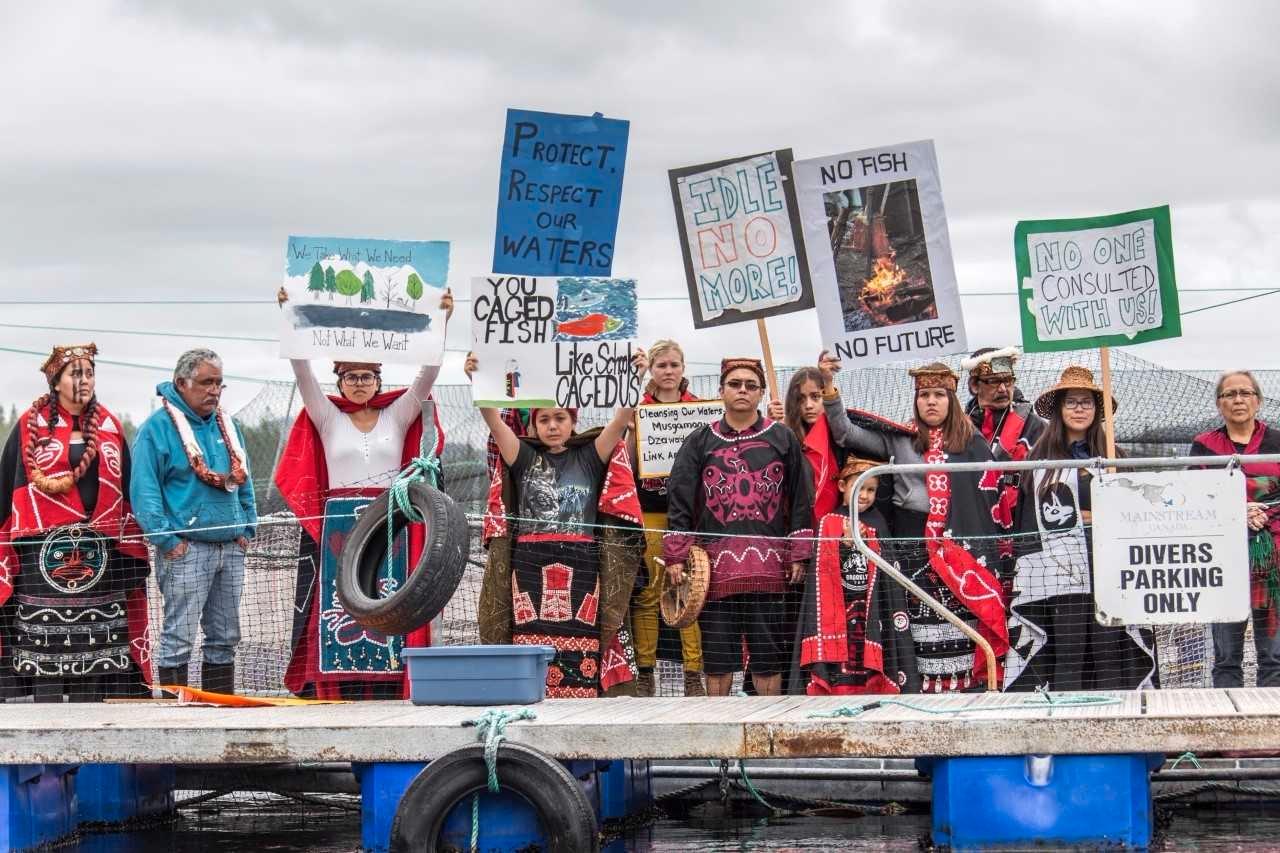Marine Harvest and Cermaq breeding facilities are accused of poisoning the region's wild salmon. Local natives are now demanding that businesses pack up and leave.
Two livestock facilities in the Canadian province of British Columbia have been occupied by indigenous protesters in recent days.
In this area there are 20 breeding establishments, all Norwegian. 12 of them belong to Marine Harvest and eight to Cermaq.
The occupiers announced that they would stay until the farms were delicensed.
Moved from Cermaq to Marine Harvest
First, a facility near Burdwood Island, owned by the Norwegian company Cermaq, was occupied by indigenous people on Wednesday. They stayed there for a few hours, according to sources on site.
Other families then occupied a facility owned by Marine Harvest on Thursday. It is located on Swanson Island, off the coast of Alert Bay, British Columbia. They are still there Saturday morning.
Residents collect evidence
The occupants of Swanson Island believe they have proof that Marine Harvest is responsible for deformed farmed fish escaping from the facility and that wild salmon in the area have been poisoned.
The families who occupied the farm also said they wanted a peaceful protest.
– Enough! To Marine Harvest: Call back your transport ships and get these Atlantic salmon out of my territory, says family leader Ernest Alfred, who claims to have collected evidence of unhealthy salmon, in a statement.
The head of the Laich-Kwil-Tach family, George Quocksister Jr., has been collecting photos of salmon in poor health for a month, according to the Canadian Broadcasting Corporation. Radio-Canada News.
– I look at them and I see what's going on in them, and it's absolutely certain that it's not good, he told CBC.

Marine Harvest denies accusations
Ian Roberts, director of community relations at Marine Harvest in Canada, answers Aftenposten's questions via email.
He confirms that a Native American tribe “has expressed concerns regarding our activity and is currently occupying our private construction sites without authorization.”
He writes that the Indians are supported by the environmental organization Sea Shepherd.
– In recent years, our company has invited Indians to visit our company and see how we operate, he writes and adds that the invitations have been declined.
He said the Indians' visit this time was a surprise.
– We will let them stay there so they can see how we operate, as long as they behave in a respectful and peaceful manner and do not disturb the employees or harm our fish, he says.
Roberts categorically denies that deformed fish are a major problem. When deformed fish are observed, they are removed from the dams. He also writes that there is no basis for claiming that farmed salmon “poison” wild salmon.
The Marine Harvest spokesperson writes that no salmon have escaped from Marine Harvest facilities in Canada.
Fear of escaped salmon
Since last week, it's lots of attention to the 305,000 salmon who escaped from a farm just south of the U.S. border. Canadian Fisheries Minister Dominic LeBlanc says he is monitoring the situation closely. A ministry spokesperson told CBC that the risk of “genetic contamination” is low. Farmed Atlantic salmon cannot mate with wild Pacific salmon.
Neville Crabbe of the Atlantic Salmon Federation, an organization that works for wild salmon, says the biggest concern about farmed salmon is that disease from farmed salmon could spread to wild salmon.
Marine Harvest, controlled by Cypriot shipowner John Fredriksen, headquartered in Bergen, is the largest fish farming company in the world.
Cermaq is also one of the largest fish farming players in the world, with operations in Norway, Chile and Canada. The company was state-owned for a long time, but in 2014 it was sold to Mitsubishi Corporation, which is now its full owner.

“Creator. Communicator. Twitter evangelist. Passionate couch potato. Thinker. Pop culture aficionado. Award-winning web junkie.”






